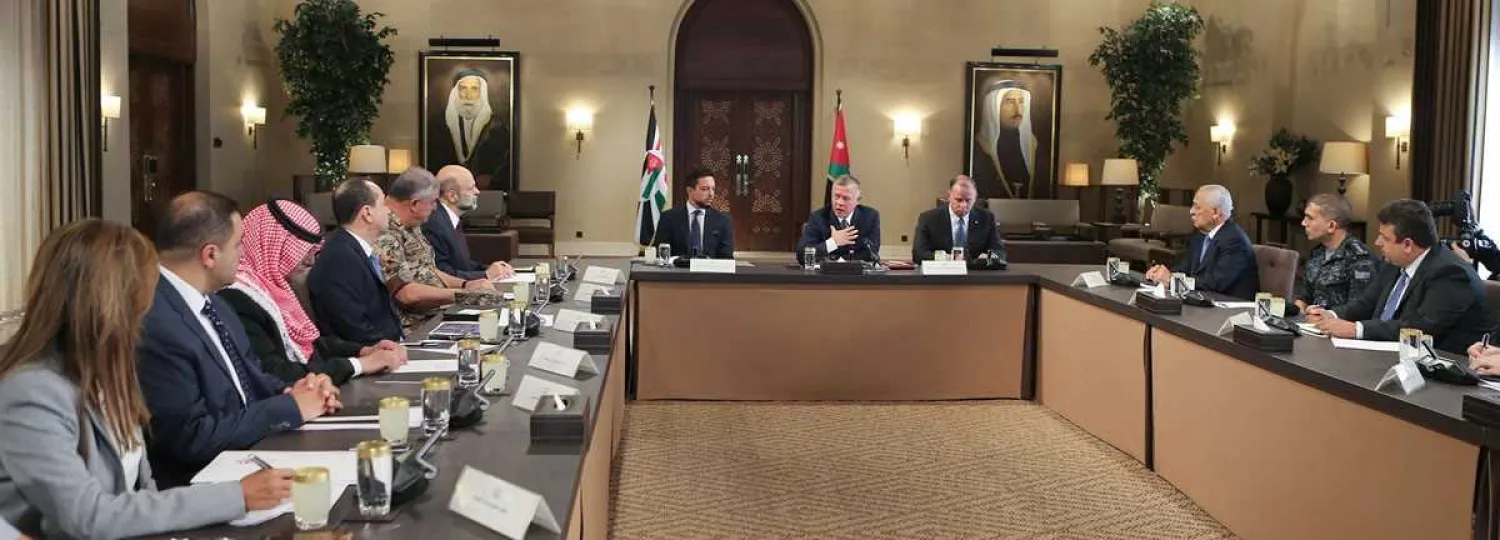Four members of the Jordanian security forces and three militants have been killed during a raid launched against a terrorist hideout in the northwestern city of Salt.
"We will fight the Khawarij and strike them without mercy and with all strength and determination," King Abdullah II told a meeting of top security officials at the Husseiniya Palace on Sunday.
The meeting was aimed at following up on the terrorist attack that targeted a joint patrol of the gendarmerie and public security forces in the Fuheis region near Amman last week and the ensuing raid in Salt in connection with the bombing.
"Jordanians are stronger when they face such events, and they are more enthusiastic to clean our country and the region of this phenomenon and protect our religion from these Khawarij," the King said.
State Minister for Media Affairs Jumana Ghneimat said the raid was carried out after the improvised explosive device that targeted a patrol van on Friday in Fuhais, outside Amman, killed a serviceman.
Ghneimat said the Salt operation left three terrorists dead. Five others were arrested, she said, adding that four members of the joint security force were also killed during the operation.
The servicemen were laid to rest on Sunday in their hometowns of Ma'an, Zarqa, Ajloun and Irbid.









